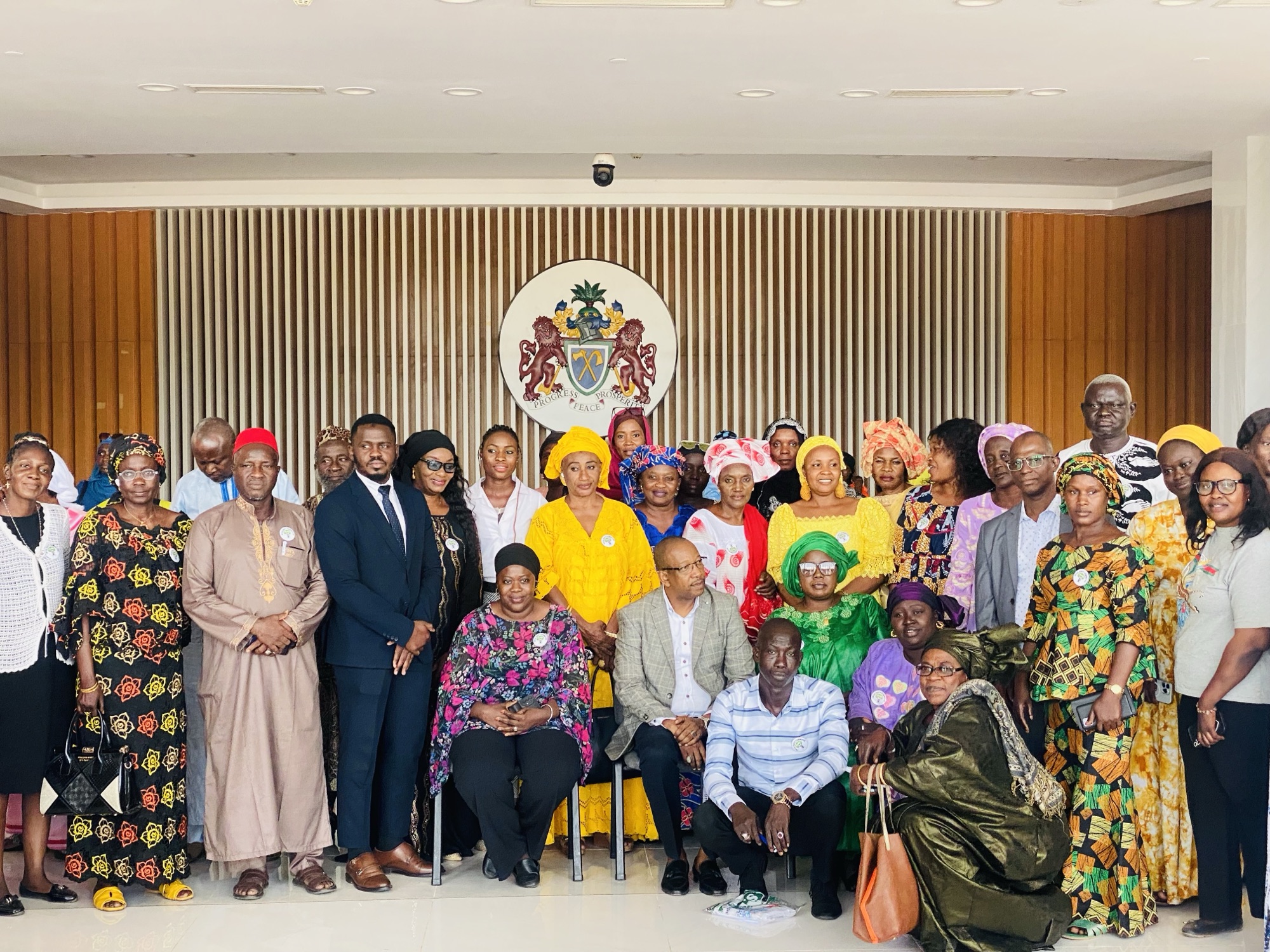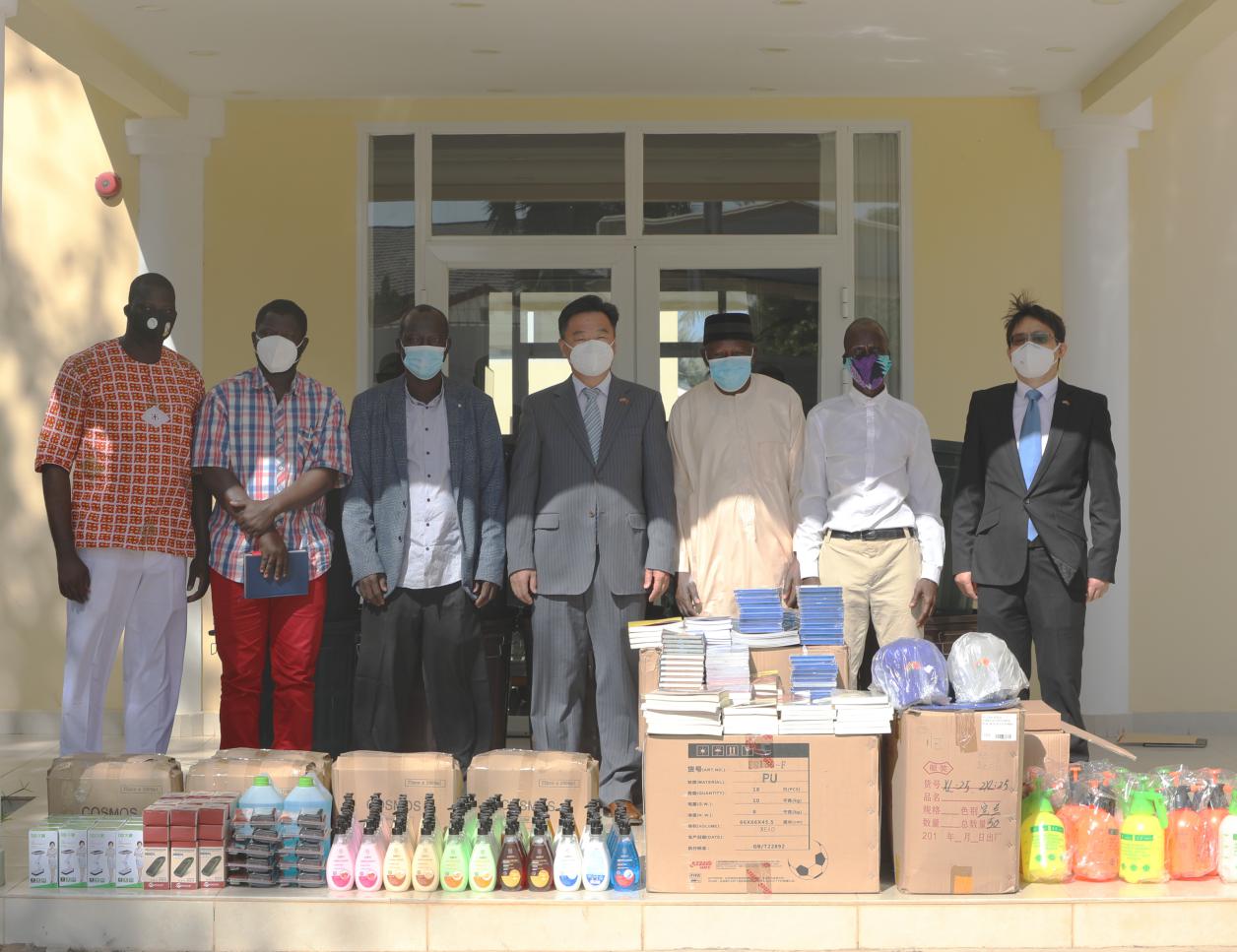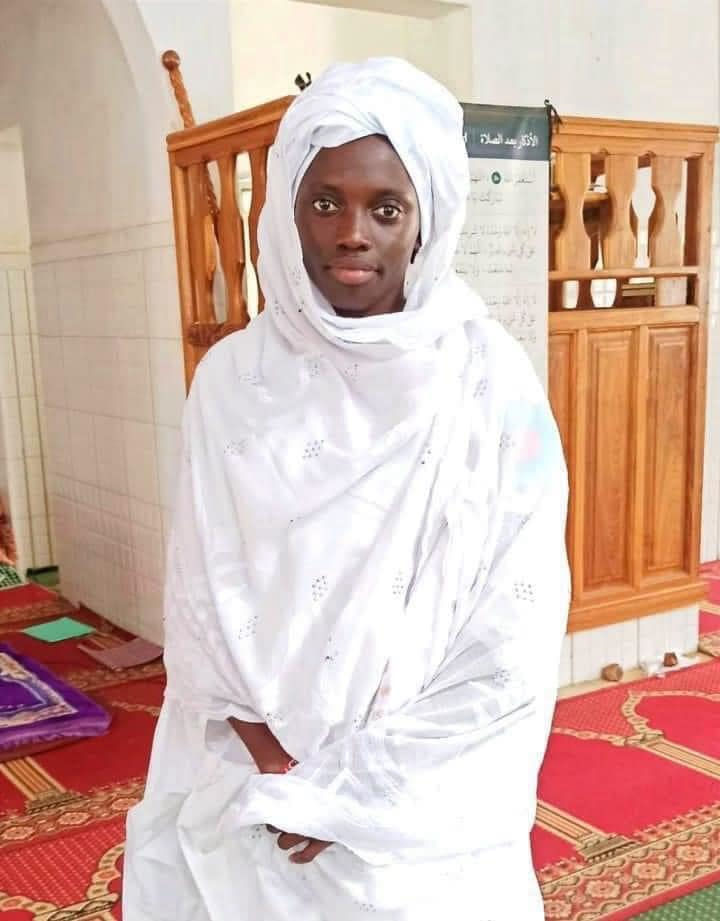The Inter-Party Committee (IPC) in partnership with United Nations Development Program (UNDP), trained women politicians on laws and gender strategy policies that promote and empower women leadership and political participation.
The training was held at the Sir Dawda Kairaba Jawara Conference Center (SDKJCC) in Kerr Sering on Monday 10th June.
Hon. Saikou Bah a Parliamentarian said that the Inter-party committee of the Gambia has been able to bring all the registered political parties, into a committee to foster co-operation in order to discuss issues consensually to promote dialogue and consensus building in the political discourse in the Gambia.
“The event today that has been fully funded by the UNDP aims to equip IPC national women and youth branches of the inter-party committee with the requisite know-how to participate more in political leadership and decision making processes in the political landscape of the Gambia”, he explained.
Mary K. Badjie Co-Chair of IPC also highlighted that young people today are more informed, more connected, and more driven to make a difference than any generation before them.
“Despite their potential, they remain underrepresented in political structures both at the national and regional levels. This underrepresentation is a missed opportunity, not just for the youth, but for society as a whole”, she underscored.
Badjie called for more policies that actively promote youth and female participation in politics.
She also advocated for the creation of mentorship programs, educational opportunities, and the accessibility and inclusivity of political processes.
She urged political parties to commit to nominating young candidates and support them throughout their campaigns.
Moreover, addressing the socio-economic barriers that prevent many young people, particularly young women, from entering politics is crucial for achieving true empowerment.
Musu Drammeh the Chairperson of the women branch of IPC also highlighted the increased accessibility of education for women in The Gambia since 2016.
“According to the World Bank’s Gender Data for 2022, 85.6 percent of girls completed Lower Basic School compared to 45.6 percent of boys who completed the Basic Education Cycle, indicating a closing gender gap.” She noted
Under the Barrow Government, she stated there has been a significant increase in higher education scholarships for girls in STEM courses, with ongoing efforts to mobilize more educational funding for those passionate about the Arts and Humanities, recognizing the need for diverse disciplines in societal progress.
Additionally, Musu further indicated that women are increasingly entering traditionally male-dominated fields through Technical and Vocational Education and Training (TVET).
Drammeh also noted the impressive data published by various development partners, including the UN System, the African Development Bank, and the Islamic Development Bank, which underscores the positive impact of political will on the advancement of Gambian women.
Mama Kandeh the party leader of Gambia Democratic Congress GDC, emphasized the importance of women and youth in politics.
“Women have bigger role to play in this world than only politics, the conflict we are experiencing in this world can be solved by women”, he said.
He further stated that women and youth are forgotten when it comes to Gambia’s political arena, he therefore advised them to take part in the political race.





